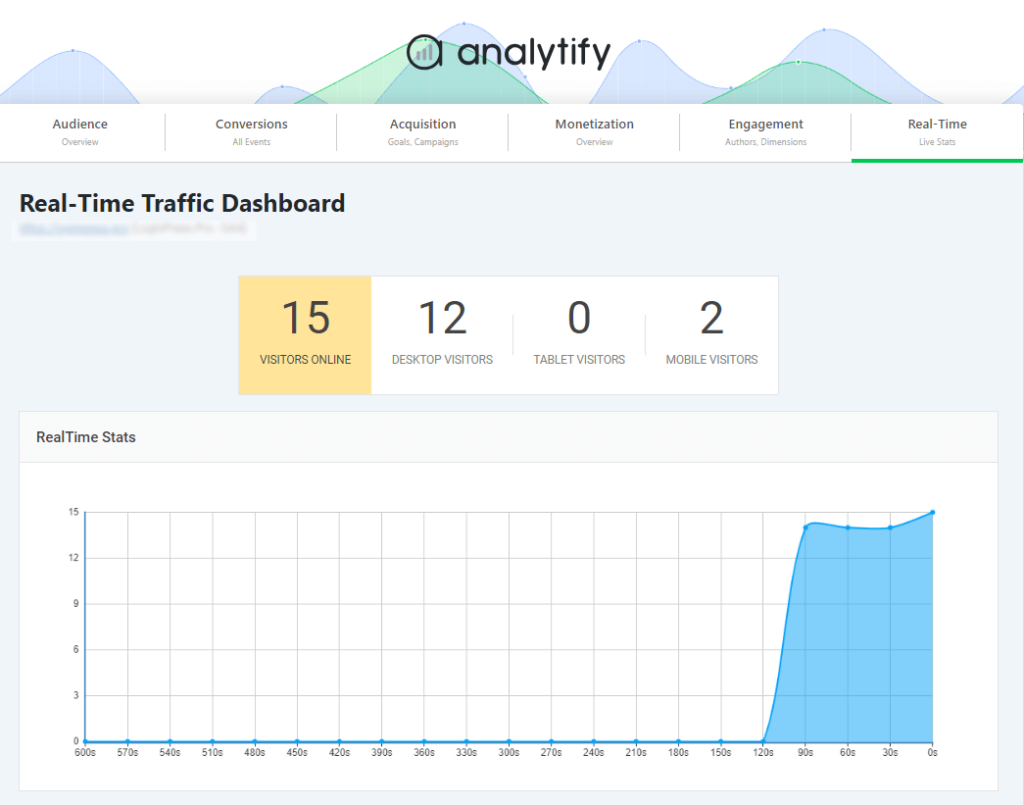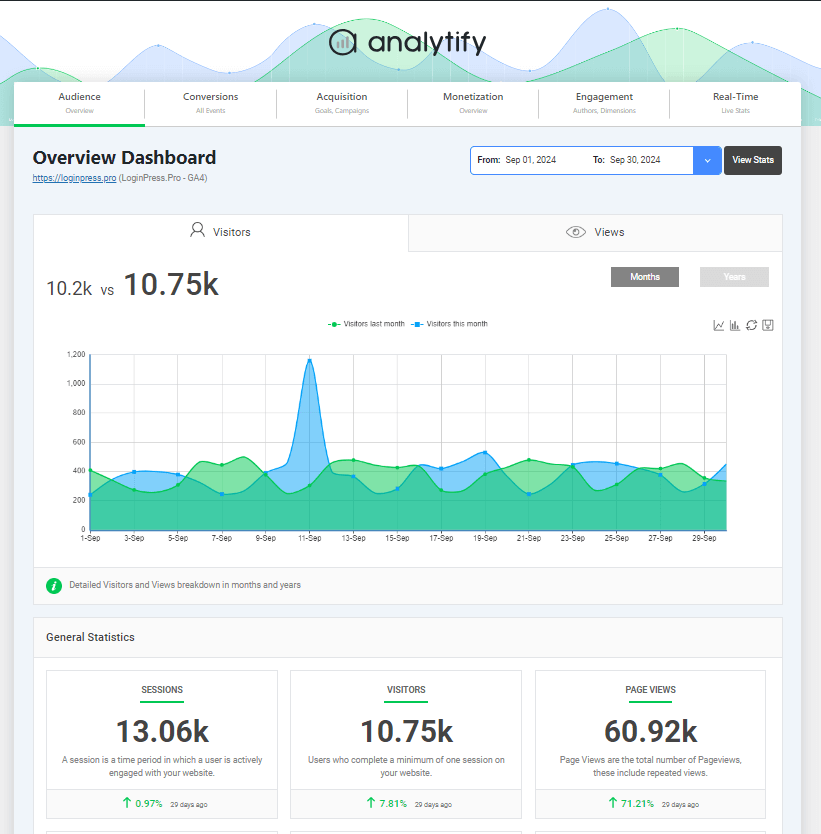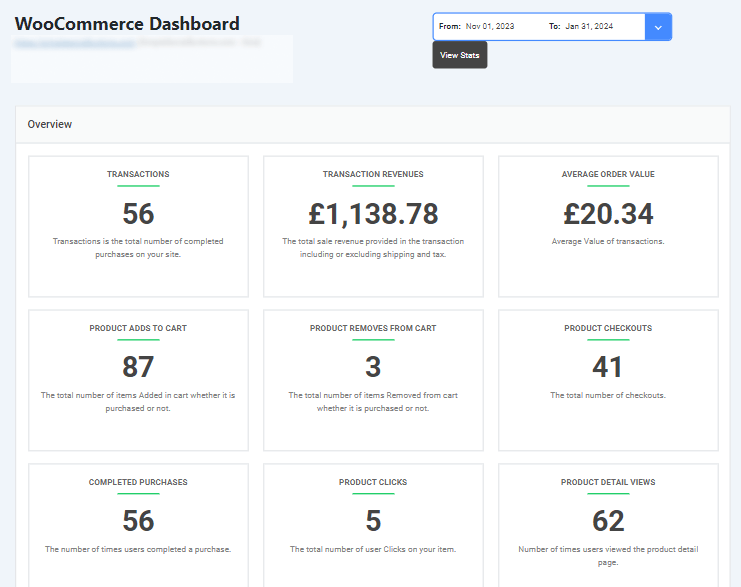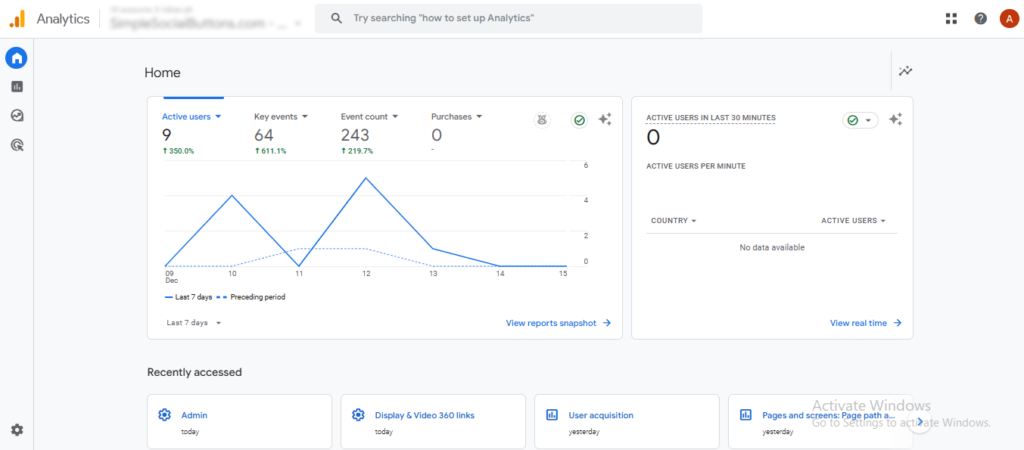
Best eCommerce Digital Marketing Strategies & Tools for 2026
Are you ready to create eCommerce digital marketing strategies that take your online store to the next level?
The eCommerce market is flourishing swiftly. To thrive in 2026, you must have sharp and effective eCommerce digital marketing strategies. These are the means to draw more customers and drive up sales.
In this guide, we’ll talk about what eCommerce marketing is and share the finest digital marketing strategies for eCommerce websites.
Furthermore, we’ll talk about the top eCommerce marketing tools that a business needs to grow in a crowded marketplace.
Let’s get started.
eCommerce Digital Marketing (TOC):
What is eCommerce Marketing?
eCommerce marketing is the process of telling the world about your store, drawing them in, and selling them something they need or didn’t know they needed. It’s simple. You use SEO, email pitches, ads on social media, and words that matter. These things bring customers to your site and nudge them toward buying.
A good strategy? A good eCommerce digital marketing strategy focuses on reaching the right audience at the right time. It’s not about throwing darts in the dark. You aim for the right people at the right time. Tools like Google Analytics or Analytify help you see what your customers do, where they wander, and when they buy. You study the data, learn, and adjust your aim.
Let’s suppose you sell clothes. You could post sharp fashion tips on social media. Maybe send a personalized note to their inbox, offering them a deal. Run ads, too, to shout about your sales. All of it works together to bring your customers in.
Why eCommerce Digital Marketing is Important in 2026
In the year 2026, the eCommerce market is a battleground. The stakes are higher, and the players are many. The ones who plan, strategize, and adapt will have the edge.
It is no longer a choice but a necessity. Here is why digital marketing is important.
1. Changing Customer Expectations
The customer is king, as they always have been. But now, the king demands more. They want what they want when they want it, without compromise. A good eCommerce marketing strategy is like a seasoned guide that delivers tailored recommendations, offers, and ads that make your customers feel valued. This builds trust and loyalty.
2. Rising Competition
The market crowd grows every day. More shops, more noise. You cannot shout louder than the rest; you must be smarter. Effective marketing for eCommerce is a beacon. It draws the right people in and holds them close. Without it, your store will be forgotten.
3. Technological Advancements
Tools like AI, automation works, and analytics are sharper and tell the truth about our business reach. With the right eCommerce marketing tools, you can see what others miss. You predict trends, you shape campaigns, and you act before it’s too late.
Plugins like Analytify help you improve your e-commerce marketing and track your sales more effectively.
By focusing on the right eCommerce marketing tactics, you can grow your online store, increase conversions, and stay ahead of your competitors in 2026.
George El-Hage, CEO of Wave Connect, says, “Technological advancements are absolutely key for businesses, especially in eCommerce, where staying ahead of the curve can be the difference between success and stagnation. At Wave Connect, we’ve learned that implementing cutting-edge tools like AI for personalization and automation is crucial for streamlining operations and improving customer interactions. For instance, by integrating AI-driven analytics into our campaigns, we saw a 30% increase in customer engagement and a 20% boost in conversions within the first three months. The right technology allows eCommerce businesses to predict trends, act proactively, and deliver more value to customers.”
Expert eCommerce Digital Marketing Strategies for 2026
To grow your online store in 2026, you need a strong eCommerce digital marketing strategy. Here are the top strategies that every eCommerce business should focus on:
1. Personalization at Scale
Personalization is one of the most effective eCommerce marketing tactics. Use customer data to recommend products, create personalized email campaigns, and show targeted ads. This makes customers feel valued and improves their shopping experience.
2. Omni-Channel Marketing
Omni-channel marketing connects all your sales and marketing channels to provide a seamless experience. For example, a customer can browse your products on Instagram, add items to their cart on your website, and complete the purchase in your app. A well-integrated eCommerce marketing strategy ensures consistency across all platforms.
3. Influencer Marketing
Influencers can help you reach new audiences and build trust. Partner with influencers in your niche to promote your products. For instance, if you sell fitness gear, collaborate with fitness enthusiasts to showcase your items. This is a cost-effective digital marketing strategy for eCommerce websites.
4. Content Marketing and SEO
High-quality content improves your visibility and attracts organic traffic. Focus on creating blog posts, videos, and guides that answer customer questions. Optimize your website for relevant keywords like eCommerce marketing and marketing tools for eCommerce to rank higher in search engines.
5. Social Commerce
Social platforms like Instagram, Facebook, and TikTok now offer in-app shopping. Use these platforms to sell directly to customers without leaving the app. Social commerce makes shopping faster and more convenient, boosting your sales.
6. Paid Advertising
Paid ads, like Google Ads and Facebook Ads, are great for driving immediate traffic. Combine them with strong targeting options to ensure your ads reach the right audience. This eCommerce digital marketing strategy works well for promoting seasonal sales or new product launches. Also, for businesses targeting specific regional markets, it’s crucial to tailor paid campaigns to the local audience.
While companies in the U.S. or UK might focus on broader demographics and higher Ad spending, brands in the UAE often benefit from more localized, culturally aware strategies. That’s why they can partner with agencies like AlCaz Media for FB Ads in UAE, where understanding the regional market helps improve targeting and engagement.
7. Retargeting Campaigns
Retargeting is a powerful eCommerce marketing tactic. Use retargeting ads to re-engage visitors who leave your site without making a purchase. Offer discounts or show them the items they viewed to encourage them to return.
8. AI-Powered Chatbots
Chatbots can answer customer questions and guide them through the buying process in real time. They also work 24/7, ensuring you never miss a potential sale. This strategy enhances customer experience and builds trust.
By using these digital marketing strategies for eCommerce, you can attract more customers, increase sales, and grow your business.
Best eCommerce Marketing Tools for 2026
Using the right eCommerce marketing tools is essential to implement your strategies effectively.
Here are the top tools for boosting your eCommerce digital marketing efforts in 2026:
1. Analytify – The Best Analytics Tool for eCommerce
Analytify is a game-changing analytics tool designed specifically for eCommerce businesses using WordPress, Easy Digital Downloads, and WooCommerce.
Unlike other complex analytics platforms, Analytify focuses on simplicity and delivers all the data you need to grow your online store.
Key Features That Set Analytify Apart:
- Real-Time Insights: Track your sales, customer activities, and traffic in real-time, ensuring you never miss an opportunity to optimize your store.
- Beautiful, User-Friendly Dashboards: While tools like Google Analytics 4 can feel overwhelming, Analytify presents your data in clean, easy-to-read dashboards that anyone can understand.
- Detailed Ecommerce Reports: Get precise reports on revenue, conversion rates, top-selling products, and more—all without technical expertise.
- Seamless Google Analytics Integration: Access the power of Google Analytics through a simplified, intuitive interface tailored for eCommerce.
- Actionable Recommendations: Beyond just numbers, Analytify offers insights that help you make smarter marketing decisions.
- Designed for eCommerce Success: Analytify focuses solely on the needs of eCommerce businesses. It highlights metrics that matter, like sales trends, cart abandonment rates, and customer behavior.
Who Should Use Analytify?
- Small-to-Medium Businesses: Perfect for those looking for a powerful yet budget-friendly analytics solution.
- WooCommerce Store Owners: Analytify’s deep integration with WooCommerce gives you insights tailored specifically to your store.
- Marketing Teams: With actionable data, marketing teams can quickly optimize campaigns and improve ROI.
Join 50,000+ beginners & professionals who use Analytify to simplify their Google Analytics!
2. Omnisend

Omnisend is a powerful email and SMS marketing automation platform built for ecommerce brands. It helps you drive more sales with intuitive tools designed to convert shoppers into loyal customers. With Omnisend, you can launch personalized, multichannel campaigns and automate messages based on customer behavior—all without needing a technical background.
Key Features:
- Pre-Built Automations: Launch abandoned cart emails, welcome series, and more using ready-to-go workflows.
- Drag-and-Drop Editor: Create stunning emails fast with an intuitive, no-code builder.
- Ecommerce Integrations: Connect seamlessly with Shopify, BigCommerce, WooCommerce, and other platforms.
Why Consider Omnisend?
- Multichannel Marketing: Combine email, SMS, and push messages into a single workflow for stronger engagement.
- Segmentation: Target the right audience based on shopping behavior, purchase history, and engagement.
- Reporting: Track campaign performance with real-time data and insights to boost results.
Best For:
- Small to mid-sized ecommerce stores looking for a user-friendly, revenue-focused marketing platform.
- Merchants who want to grow faster with automation and omnichannel reach, without a steep learning curve.
3. Google Analytics 4
Google Analytics 4 (GA4) is a widely used tool that helps eCommerce businesses track customer behavior across multiple platforms. It provides deep insights into how visitors interact with your website, helping you improve your marketing efforts.
Key Features:
- Cross-Platform Tracking: GA4 offers a unified view of user behavior, whether on desktop, mobile, or apps.
- AI-Powered Insights: Use predictive metrics to understand what customers are likely to do next, such as purchasing or leaving your site.
- Custom Reporting: GA4 lets you create reports tailored to your business needs, making it easier to analyze campaigns.
- It’s a comprehensive tool for tracking customer journeys.
- It’s free for most businesses, offering significant value without a subscription cost.
- It’s highly customizable for advanced users who need detailed insights.
Best For:
- Businesses with dedicated marketing teams or advanced analytics needs.
- Companies are looking to track multi-channel customer journeys in detail.
4. Klaviyo – Email and SMS Marketing Automation
Klaviyo is a leading email and SMS marketing platform tailored for eCommerce businesses. It helps you create personalized campaigns that engage customers and drive sales. With Klaviyo, you can automate your communication and deliver targeted messages based on customer behavior. It’s worth comparing Klaviyo alternatives to understand Klaviyo’s strengths and help you decide whether it’s the right fit for your brand.
Key Features:
- Advanced Segmentation: Klaviyo allows you to group customers based on their shopping habits, making your marketing more effective.
- Pre-Built Templates: Save time with ready-to-use templates for emails and SMS campaigns.
- Seamless Integrations: Connect Klaviyo with platforms like Shopify, WooCommerce, and Magento to streamline your marketing.
Why Consider Klaviyo?
- Personalization: Send emails and SMS messages tailored to individual customers, increasing engagement and conversions.
- Automation: Set up workflows like abandoned cart reminders, welcome series, or product recommendations, saving time and effort.
- Analytics: Measure the performance of your campaigns to improve results.
Best For:
- Businesses focusing on building customer relationships through email and SMS.
- Stores with larger budgets looking for advanced automation in their eCommerce digital marketing strategy.
5. SEMrush – Comprehensive SEO and PPC Tool
SEMrush is an all-in-one platform designed to improve your online visibility. It specializes in helping eCommerce businesses optimize their SEO and PPC campaigns. With SEMrush, you can research keywords, analyze competitors, and improve your search engine rankings.
Key Features:
- Keyword Research: Discover high-performing keywords to target in your content and ads.
- Competitor Analysis: Understand what your competitors are doing to rank higher and attract traffic.
- Site Audit: Identify and fix technical SEO issues on your website to improve performance.
- PPC Campaign Insights: Optimize your paid ad campaigns with data-driven recommendations.
- SEO Expertise: SEMrush is one of the most trusted tools for improving search engine visibility.
- Comprehensive Data: It provides detailed reports that help you refine your marketing strategies.
- Competitor Benchmarking: Learn from your competitors’ successes and avoid their mistakes.
Best For:
- Businesses looking to improve their organic and paid search performance.
- Marketers who need in-depth SEO and PPC insights for their eCommerce marketing strategy.
6. Shopify Marketing Tools – Built-In Solutions
- Templates for All Needs: Access pre-designed templates for social media posts, ads, email banners, and more.
- Drag-and-Drop Editor: Customize your visuals effortlessly with a simple interface.
- Brand Kit: Maintain consistent branding by uploading your logo, fonts, and colors.
Collaboration Tools: Work with your team in real-time to create and review designs.
Shopify provides built-in eCommerce marketing tools like Shopify Forms, Shopify Inbox, Shopify Email, segmentation, and marketing automation that simplify marketing efforts. From email campaigns to SEO features, Shopify equips its users with everything they need to promote their products and grow their online stores.
Key Features:
- Automated Email Marketing: Send welcome emails, product recommendations, and abandoned cart reminders directly from Shopify.
- SEO-Friendly Design: Optimize product pages and blogs for search engines without additional plugins.
- Analytics Dashboard: Track sales performance, customer behavior, and marketing campaigns.
- Ad Campaign Management: Launch and manage Facebook and Google ads directly from the Shopify interface.
- Convenience: Everything is integrated into the Shopify platform, so there’s no need for external tools.
- Beginner-Friendly: Perfect for new store owners with little marketing experience.
- Seamless Integration: Works effortlessly with your Shopify store to save time and effort.
Best For:
- Shopify store owners looking for simple and integrated marketing tools.
- Businesses seeking an all-in-one platform for running their store and marketing campaigns.
7. HubSpot for eCommerce – CRM and Marketing Automation
HubSpot is a powerful platform that combines customer relationship management (CRM), marketing automation, and analytics into one tool. For eCommerce businesses, HubSpot simplifies managing customer interactions, running campaigns, and analyzing performance.
Key Features:
- Integrated CRM: Track and manage customer interactions across email, social media, and more.
- Marketing Automation: Automate email campaigns, product recommendations, and lead nurturing workflows.
- Detailed Reporting: Access dashboards that show the effectiveness of your campaigns and sales efforts.
- Seamless Integrations: Works with platforms like Shopify, WooCommerce, and Magento.
- All-in-One Solution: HubSpot combines CRM, marketing automation, and reporting in a single platform.
- Scalability: Whether you’re a small business or a growing enterprise, HubSpot scales with your needs.
- Customer Insights: Get a complete view of your customers to improve retention and engagement.
Best For:
- Growing eCommerce businesses need advanced CRM and marketing automation.
- Teams focused on streamlining customer management and improving marketing ROI.
8. Hootsuite – Social Media Marketing Simplified
Hootsuite is a popular tool for managing social media marketing campaigns across multiple platforms. It helps eCommerce businesses save time by scheduling posts, tracking engagement, and analyzing social media performance from a single dashboard.
Key Features:
- Social Media Scheduling: Plan and schedule posts across platforms like Instagram, Facebook, Twitter, and LinkedIn.
- Analytics and Reporting: Measure the performance of your campaigns to see which posts drive the most engagement.
- Engagement Monitoring: Track mentions of your brand and respond to customer messages directly within Hootsuite.
- Team Collaboration: Allow team members to work together on social campaigns seamlessly.
Best For:
- eCommerce businesses with a strong focus on social media marketing.
- Teams managing multiple social media accounts and looking for streamlined workflows
Case Studies: Successful eCommerce Marketing Examples
Real case studies can show how effective eCommerce digital marketing strategies and tools can drive growth.
Here is the case study that highlights the impact of well-planned eCommerce marketing tactics:
Case Study 1: Personalization and Analytics Boost Sales for LoginPress
Overview:
LoginPress, a popular plugin for customizing WordPress login pages, wanted to increase its user engagement and conversion rates. By leveraging a data-driven eCommerce marketing strategy, they achieved significant growth.
Strategies Used:
- Analytify was used to track user behavior on their website, identifying which features and plugins attracted the most attention.
- Google Analytics was used for detailed funnel tracking of their sales.
- Retargeting ads highlighted premium features, targeting visitors who had explored specific functionality but hadn’t completed their purchase.
Why LoginPress Chose Analytify:
- Detailed Insights: Analytify provided clear, actionable reports on their most visited pages and top-performing features.
- Easy Integration with WooCommerce: Analytify allowed them to track sales data and user interactions effortlessly.
- Real-Time Analytics: They could monitor the immediate impact of marketing campaigns and adjust strategies accordingly right from the Analytify dashboard.
Join 50,000+ beginners & professionals who use Analytify to simplify their Google Analytics!
Results:
- Conversion rates increased by 40% within three months.
- Email engagement improved significantly, with open rates rising by 55% and click-through rates by 30%.
- Retargeting ads led to a 25% boost in premium subscription purchases.
Emerging Trends in eCommerce Marketing for 2026
The eCommerce industry is constantly evolving, and staying ahead requires understanding the latest trends. Here are some key eCommerce marketing tactics and innovations that will shape 2026:
1. AI-Driven Personalization
91% of consumers are more likely to shop with brands that provide personalized offers and recommendations (Accenture).
Artificial intelligence (AI) is transforming how businesses interact with customers. In 2026, AI will play a significant role in delivering personalized shopping experiences. From product recommendations to dynamic pricing, AI helps businesses cater to individual customer preferences.
2. Voice Search Optimization
Voice search is becoming more common, with consumers using smart devices like Alexa and Google Assistant to shop online. Optimizing your eCommerce marketing strategy for voice search will be crucial to capturing these users.
By 2026, 75% of US households are expected to own a smart speaker.
Tip:
Focus on long-tail keywords and natural language phrases to align with how people speak during voice searches.
3. Social Commerce Growth
Social platforms like Instagram, TikTok, and Pinterest are becoming powerful shopping channels. In-app purchasing features make it easier for users to shop without leaving their favorite platforms.
62% of Gen Z and millennials prefer to shop through social media platforms.
How to Adapt:
Use engaging visuals created with tools like Canva and analytics from tools like Analytify to track engagement and improve campaigns.
4. Sustainability and Ethical Marketing
Consumers are increasingly choosing brands that prioritize sustainability and ethical practices. Highlighting eco-friendly products, recyclable packaging, and ethical sourcing in your marketing will appeal to conscious shoppers.
78% of consumers say a company’s environmental practices influence their purchasing decisions.
Example:
Promote your sustainability efforts in your content and marketing campaigns to build trust and loyalty.
5. Blockchain for Secure Transactions
Blockchain technology is enhancing payment security and transparency. By using blockchain, businesses can provide customers with confidence in secure transactions and the authenticity of products.
The global retail blockchain market is expected to reach $4.5 billion by 2025.
Blockchain adoption will grow, particularly for businesses selling high-value or luxury items.
Ecommerce Marketing FAQs
1. What is eCommerce digital marketing?
eCommerce digital marketing involves using online channels like search engines, social media, email, and websites to promote and sell products or services. A good eCommerce marketing strategy helps attract customers, increase sales, and build brand loyalty.
2. What are the best digital marketing strategies for eCommerce websites?
Some top digital marketing strategies for eCommerce websites include personalization, SEO optimization, paid advertising, social media marketing, and using automation tools like Analytify to track performance.
3. How do I choose the right tools for eCommerce marketing?
When selecting tools for eCommerce marketing, consider factors like ease of use, cost, and features. For instance:
Use Analytify for tracking sales and customer behavior.
Choose SEMrush for keyword research and SEO.
Leverage Klaviyo for email and SMS automation.
4. Why is personalization important in eCommerce marketing?
Personalization improves the shopping experience by offering tailored recommendations and content based on user behavior. This approach increases customer engagement and drives conversions.
5. How can Analytify help with eCommerce marketing?
Analytify simplifies analytics for WooCommerce and WordPress stores, offering real-time insights into traffic, sales, and user behavior. It helps businesses make data-driven decisions, optimize campaigns, and boost revenue.
6. What are the top trends in eCommerce marketing for 2026?
Key trends include AI-driven personalization, voice search optimization, social commerce, sustainability, blockchain for secure payments, and AR/VR for interactive shopping experiences.
Final Thoughts
The eCommerce landscape is more competitive and innovative than ever. To succeed, businesses need effective eCommerce digital marketing strategies and reliable eCommerce marketing tools. By leveraging tools like Analytify, you can gain actionable insights to optimize your campaigns and grow your store.
Adopting advanced strategies such as personalization, SEO, and social commerce while keeping up with trends like AI (Artificial Intelligence) will give your business a competitive edge. Tools like Analytify, SEMrush, and Google Analytics make it easier to implement these strategies effectively.
We hope this article helped you understand the best eCommerce strategies and tools to succeed in your business.
You may also like to read:
- 10+ Crucial Ecommerce Metrics to Track in GA4
- How to Set Up a Multilingual Ecommerce Website
- 5 Enhanced Ecommerce Reports That You Need To Understand Now
We’d love to hear about which eCommerce digital marketing strategy you found beneficial. Share your thoughts in the comments below.














Great article! I found the insights on eCommerce strategies really helpful, especially the section about leveraging social media for marketing. It’s crucial to stay updated with the latest tools to enhance online sales. Looking forward to implementing some of these strategies!